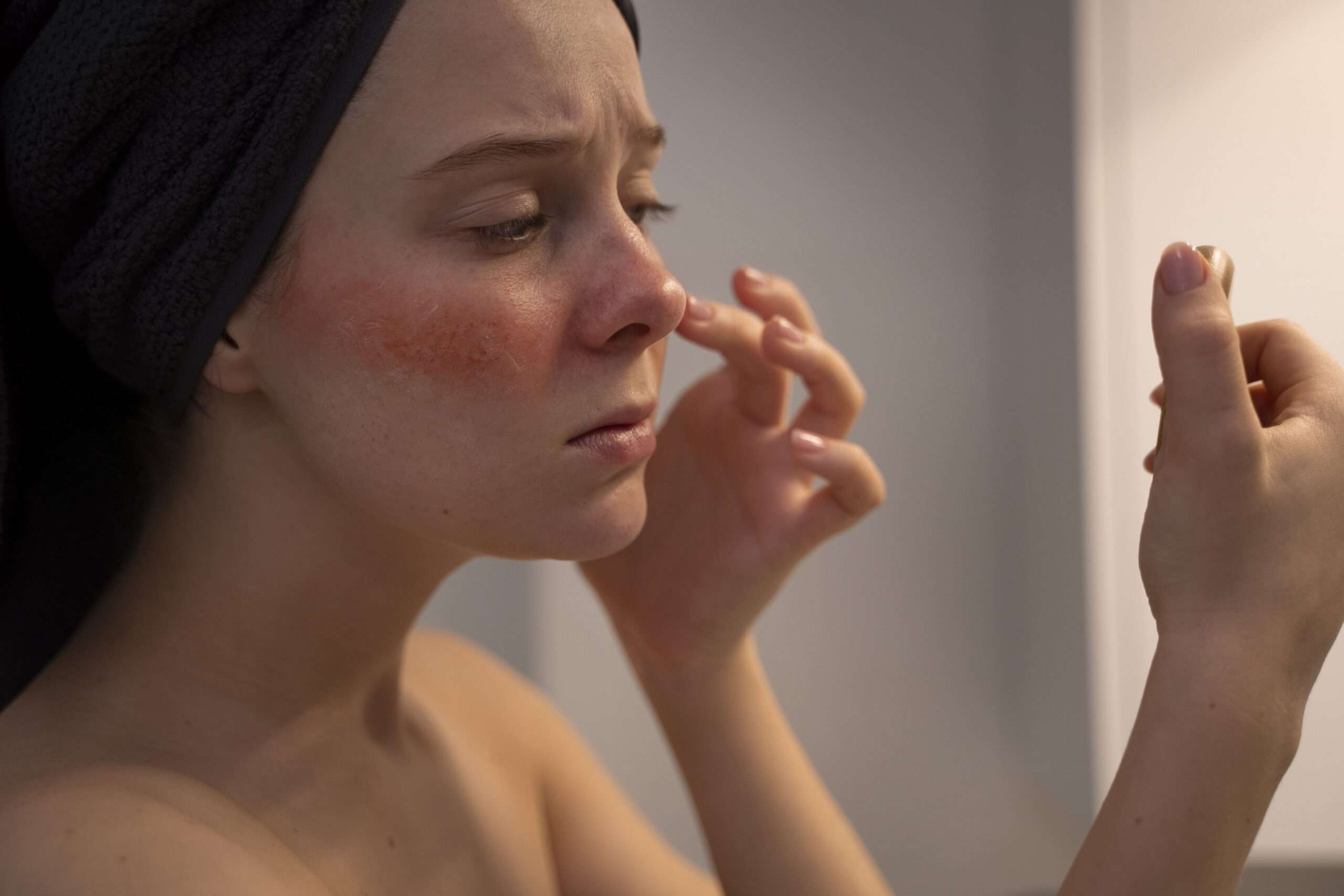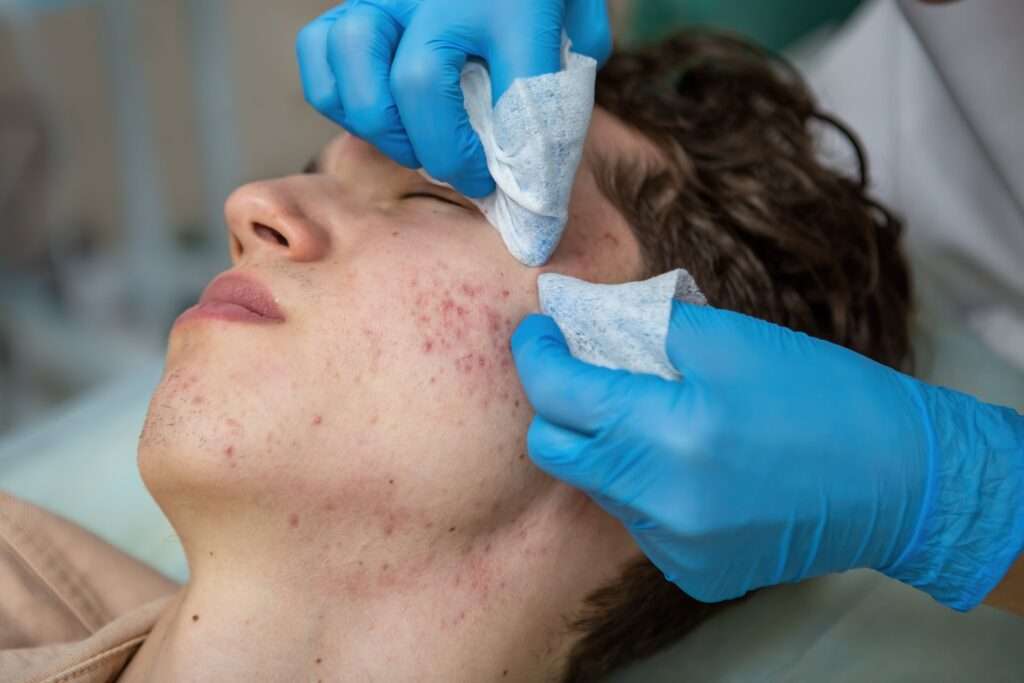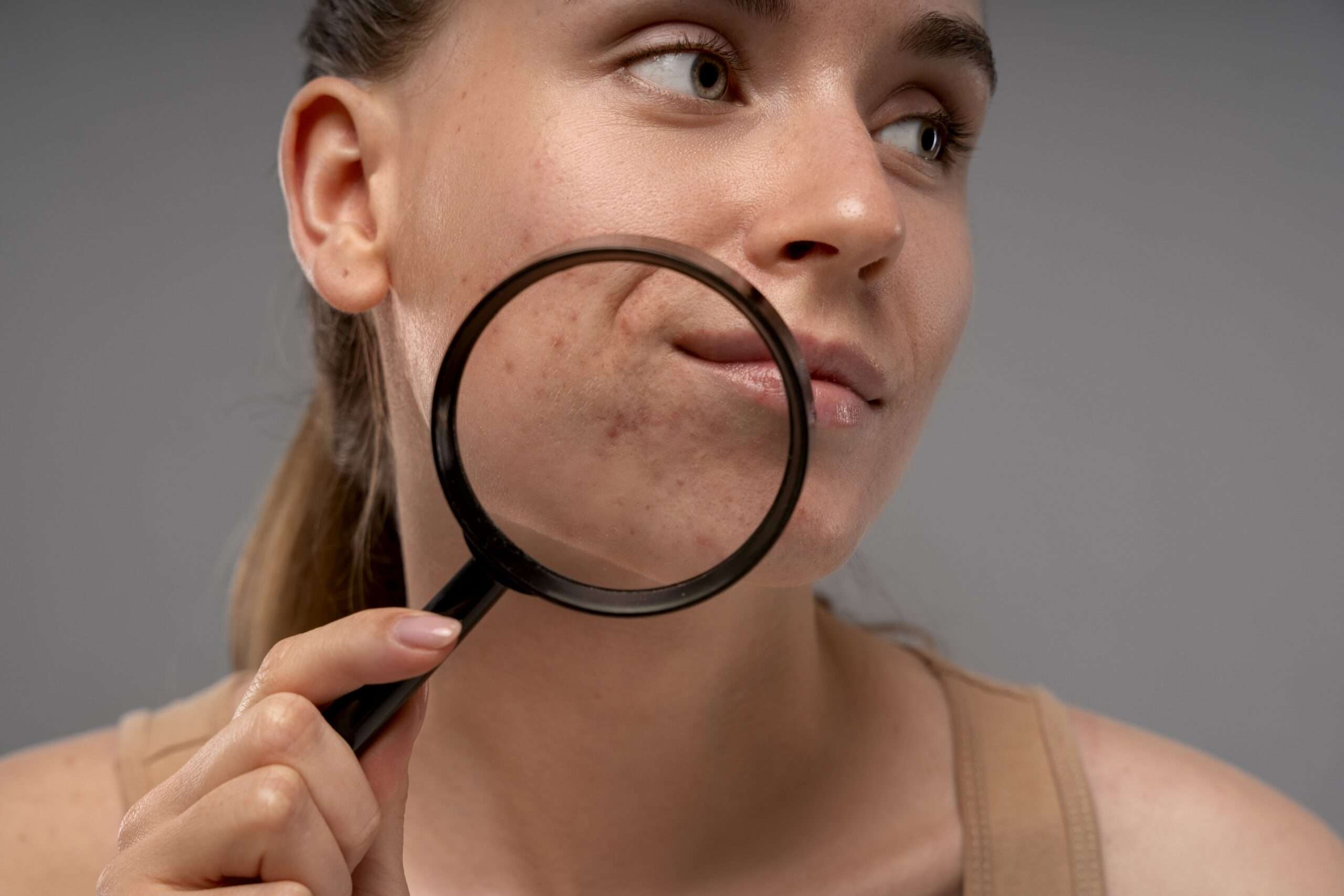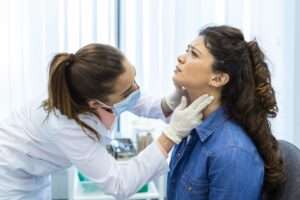One of the most prominent skin disorders in the world, acne can affect people of all ages, but it is most common in adolescence. Acne can be caused by dietary choices, lifestyle choices, genetic predispositions, and even underlying health conditions, however it is frequently linked to hormonal changes throughout puberty. It’s crucial to get a professional examination in order to fully comprehend the problem and successfully address it; this usually starts with diagnostic testing provided by a clinical laboratory.
Could Your Diet Be Contributing to Acne?
ndeed, dietary factors can have a big impact on acne development. According to studies, high-glycemic diets including processed foods, sugary snacks, and white bread may cause breakouts by raising insulin levels, which in turn cause the skin to produce more oil. Some people’s acne has also been linked to dairy products, particularly skim milk. It’s crucial to remember that every individual’s body responds differently, so even if one person may see clear skin following dietary adjustments, another may need more help.

Are Hormones to Blame?
Hormonal changes are frequently the cause of acne. The body produces more androgens throughout puberty, which causes the skin to produce more sebum, or oil. This extra oil can block pores and fuel microorganisms that cause acne. Teenagers aren’t the only ones who might get hormonal acne, though; adult women in particular can get flare-ups because of menstruation, pregnancy, PCOS, or hormonal changes brought on by stress. Blood tests that measure levels of androgen, estrogen, progesterone, and other hormones are frequently necessary to detect hormonal abnormalities.
Could There Be an Underlying Medical Condition?
Indeed. Acne can occasionally be a sign of something more serious. Prolonged, treatment-resistant acne can be a symptom of conditions like PCOS or abnormalities of the adrenal glands. In many situations, acne serves as a warning sign that the body needs help with something. Gastrointestinal problems, metabolic abnormalities, and chronic inflammation could be additional contributing factors. Your clinical laboratory may prescribe a thorough assessment of blood chemistry, hormone levels, and even gut health markers to investigate these options.
What Tests Can Help Identify the Root Cause?
Accurate diagnosis is key to treating acne effectively. At a professional clinical laboratory, a variety of tests can help determine the underlying causes of acne:
- Hormone Panel: Evaluates levels of testosterone, DHEA, estrogen, and other hormones that influence oil production.
- Blood Glucose and Insulin Tests: Helps detect insulin resistance or blood sugar imbalances that may contribute to acne.
- Thyroid Function Tests: Thyroid disorders can impact hormone regulation and skin health.
- Liver Function Tests: A sluggish liver may affect the body’s ability to filter toxins, potentially worsening acne.
- Vitamin and Mineral Panels: Deficiencies in zinc, vitamin A, vitamin D, and omega-3 fatty acids are often linked to skin health.
- Food Sensitivity Tests: Identifying inflammatory reactions to certain foods can help customize dietary interventions.
These tests provide a holistic picture of your internal health and allow a healthcare provider to create a personalised treatment plan.

How Can Acne Be Treated Once the Cause Is Known?
Once the underlying cause is identified, treatment becomes far more effective. For example:
- Hormonal acne may be treated with specific medications or supplements to balance hormones naturally.
- Diet-related acne often improves significantly with strategic dietary changes and lifestyle adjustments.
- Pathological acne linked to medical conditions may require both topical treatments and internal therapies based on test results.
Furthermore, topical treatments like salicylic acid, benzoyl peroxide, or retinoids may be suggested by dermatologists; systemic treatments like antibiotics or isotretinoin are saved for more serious situations. Crucially, continuous assistance from medical specialists and clinical laboratories guarantees that the illness is properly tracked and treated.
Is Acne Curable?
Acne is very treatable, even though it isn’t necessarily cured in the conventional sense. Many people get long-lasting clear skin with the correct strategy, which is based on diagnostics and evidence-based treatment. The secret to successful results is patience, consistency, and a readiness to investigate the body’s internal health.
Are You Ready to Take Control of Your Skin Health?
At Konomou Clinical Laboratory in Larnaca, we believe that healthy skin starts from within. If you or a loved one is struggling with acne, don’t just cover it—understand it. Our team offers a comprehensive range of diagnostic tests designed to uncover the root causes of skin conditions like acne. Book your appointment today and let us help you find the clear path to clearer skin.
Contact us now to schedule your consultation and begin your journey to confidence and clarity.





